Has your baby begun shaking head? When head shaking is part of normal child development? When it may be indicative of larger problem?
Baby’s first smile, the first time he sucks his finger, first time he lifts his leg are the most exciting moments for the parents. But when the parents see their baby shaking head side to side, it may be a matter of major concern for them.
This article discusses why do babies shake their head side to side? And when to worry about baby shaking head? It presents the ways to stop baby from shaking head.
Why Do Babies Shake Their Head Side to Side?
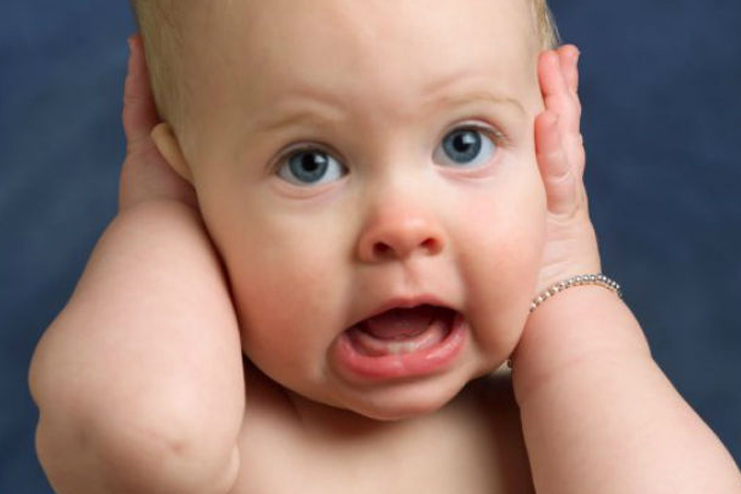
When your baby shakes head, it is a sign of playfulness and interaction. Most of the time babies shake their heads for one of the following reasons:
Exploring: Exploring gives your baby an opportunity to work on motor skills. Your new born baby shaking head side to side may be to explore how their body moves and works.
Entertaining: Babies may shake their heads when they are entertained. A baby can be entertained by his own body like- clapping their hands, laying the baby on his back, talk or sing with your baby.
Self Soothing: Some babies shake their heads to soothe themselves when they fall asleep.
Imitating: Young infants are capable of imitating facial gestures, hand gestures, facial expressions or vocal sounds. Babies may be able to shake their heads to signal ‘Yes’ or ‘No’ by the time they turn one year.
Fatigue: Tired babies may shake their heads to create dizziness which makes them to fall asleep.
Ear Infection: Children under the age of 3 are at the highest risk of ear infection. They may shake their heads in order to convey their state of discomfort.
Autism: Autism is a developmental disorder that damages the ability to interact and communicate. You may also read 24 Important Facts on Autism.
The following three are the most common situations where babies shake their heads:
A. Baby Shaking Head While Sleeping:
Babies may shake their heads to soothe themselves for any inconvenience caused during sleep.
B. Baby Shaking Head While Playing:
Babies may shake their heads while on his tummy or his back. This may be action gained by the interaction withe the peers at home. Your baby may be imitating the actions of peers and siblings at home.
C. Baby Shaking Head While Nursing:
Most of the babies shake their heads while nursing in the attempt of trying to latch on.. Support your baby’s head during the first three months while nursing. It will help him to learn latch on easily.
Is Baby Shaking Head a Sign of Teething?
Teething generally occurs between 6 to 24 months of age. Babies can not convey their pain as the teeth break through the gums.So, they use shaking head as a sign of teething.
Some of the known signs and symptoms of teething include:
- Low grade fever
- Loss of appetite
- Vomiting
- Sore gums
- Ear ache
- Teething rash
- Red flushed cheeks
You can try giving your baby teething necklace, natural teething toys, and breast milk popsicles.
Is Baby shaking Head a sign of Autism?
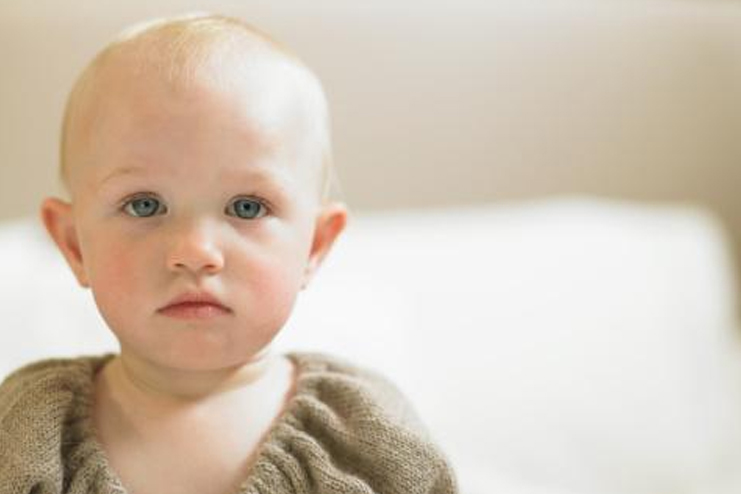
A baby who has only the habit of head shaking does not have autism. A baby with autism may exhibit additional features such as having trouble making eye contact with caregivers or non responsive to their names when called. They may also exhibit abnormal behavior like banging their head to crib or wall.
The following are the signs that the child with autism generally exhibit.
1. Lack of Social Interaction:
Babies who do not have much interaction with parents and siblings, show no response to their names or sounds. They exhibit unusual gaze and no interest or response to smiles.
2. Poor Communication Signals:
Usually, babies around 7-8 months point to the things and they exhibit very active hand gestures. On the other hand the child with autism will not be able to use hand gestures properly and they will also have poor voice quality.
3. Loss of Key Skills:
The babies with autism will exhibit less language skills as they develop. They will make less eye contact with the people around.
4. Repeated Behaviour or Movements:
Babies with autism will often exhibit repeated movements with no signs of learning new things.
5. Headbanging:
The babies with autism may bang their heads against cradle or wall. They may tend to exhibit this behaviour at the times of anxiety or frequently for a long time.
6. Missing Developmental Milestones
If your baby is missing developmental milestones on time, it is a sign that your baby is on the track of autism.
How to Stop Baby From Shaking Head?

1) Ignore the Behavior
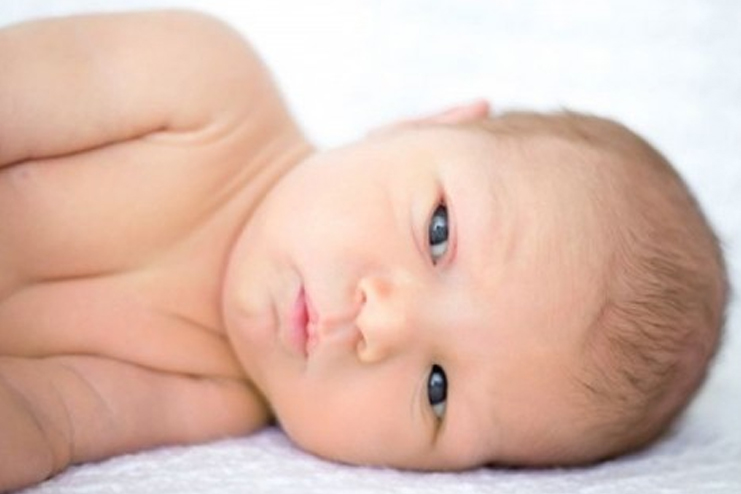
If you recognize that the behaviour is to grab the attention, try ignoring the behaviour and notice the response of your baby for the ignorance.
Ignoring help’s to reduce unwanted behavior. Ignoring works well for the behaviors like crying when nothing is physically wrong, tantrum. If you notice any kind of behaviour that is not meant for attention and dangerous to your kid like head banging should not be ignored.
2) Track the Frequency and Duration:
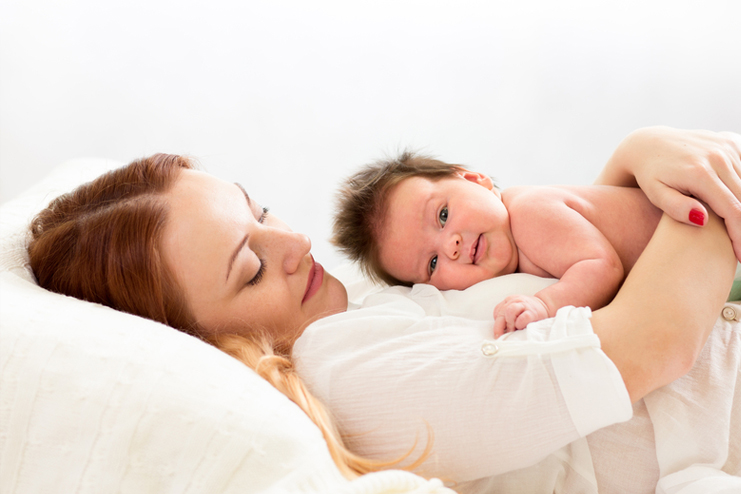
Note down the duration for which your baby shakes head. So that you can recognize whether it is a recurring phenomenon that needs your attention or it is a rare and common that you can ignore.
This helps to treat baby shaking head side to side.
3) Alter the Environment
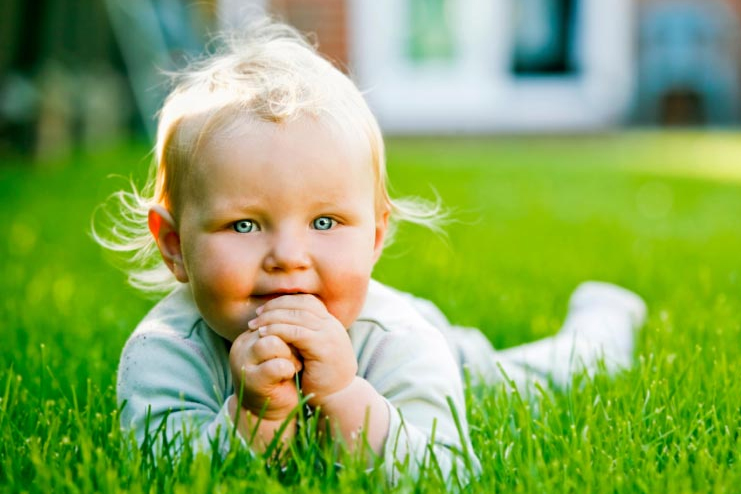
Observe the environments which triggers him to start shaking head. Try to bring about a change to the environment which you feel discomforting your child. Take your baby to the calm and pleasant environment.
The things that might make your baby to shake head are:
- Sensations like noise or light
- Surroundings (when left unclean)
- Tired during nap time
Change your child’s physical environment
- Encourage quiet and calm activities before bed time.
- Plan frequent breaks
- Take your child to the shopping after the afternoon nap time.
- Make sure the screens like tablets and TVs are off when your baby is trying to sleep.
4) Try Soothing
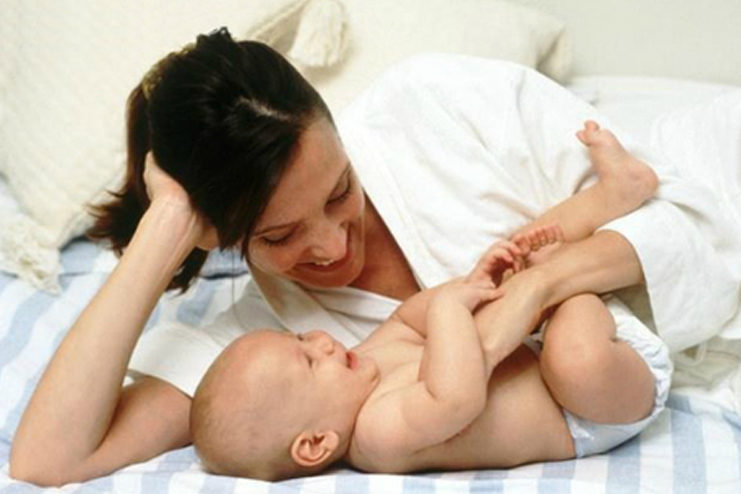
Relax your baby with some soothing moments
- Gently rub the baby’s back, chest or tummy with the massage oil
- Wrap the baby with the soft blanket
- Rock in a chair
- Sing a song for your baby
- Soothe with rhythmic whooshing sounds, that may remind them of the womb
- Soothe your baby during bath time by adding few drops of aroma or chamomile infused soap to the water
- Keep your little one entertained with silly noise or animated expressions
5) Show Your Love and Interest:
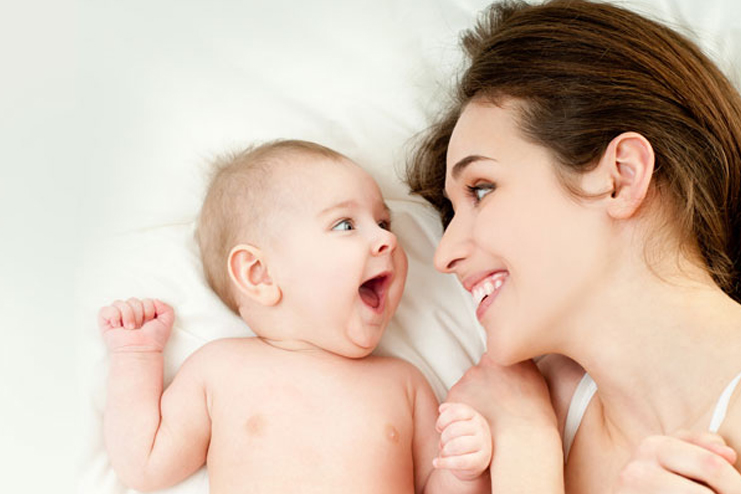
Some toddlers engage in some self soothing behaviors like Head banging, head shaking, rubbing body parts, hair pulling/twisting, facial/body or vocal tics. The exhibit these kind of behaviors as they not getting enough contact with the parents or caregivers.
Be affectionate and patient towards the child with autism.
When to Worry About Baby Shaking Head:
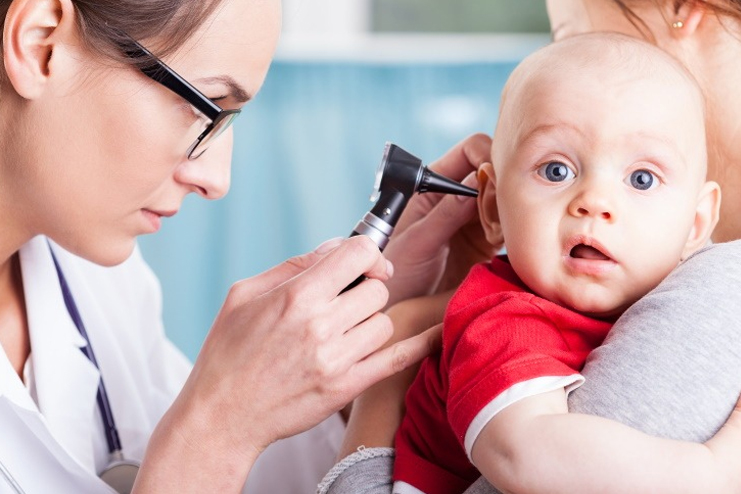
There are few instances which are the signs of discomfort or pain caused to your baby during head shaking.
If you notice any of the following symptoms along with the shaking head, it’s time to visit your pediatrician.
1. Symptoms of illness or injury such as fever, bruises, or rash
2. History of fall that have hurt your baby’s head.
3. If your baby experience continuous head shaking during the times of stress.
4. If your baby has difficulty in making eye contact with adults
5. If you notice any signs of developmental delay
6. If your baby has trouble in waking up
7. One of the most common illness that makes the baby to shake heads is ear infection. One of the most common sign of ear infection in the infants who cannot express their pain verbally, is fever of 102 degrees fahreheit or above.
If your notice your baby shaking head during feeding or playtime, it is not an immediate sign of medical emergency. You must visit the doctor if the head shaking is frequent and lasts for a long time with unwell health conditions. Try the 5 simple tips mentioned in this article to stop baby from shaking head in case the head shaking is not accompanied by any health conditions.







































